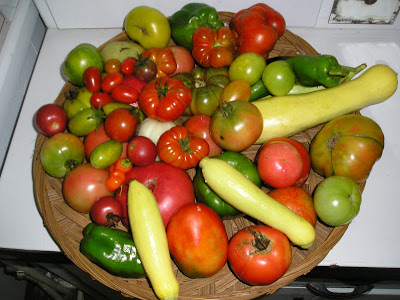As gardeners we most often worry about water QUANTITY - how much or how little water our plants get. But for others in our community water QUALITY is of utmost importance.
George Hurd, Environmental/Resource Development Educator for Penn State Extension, Franklin County, provides information on well water and calls to our attention that in Pennsylvania those who own private wells are responsible for checking on their water quality.
 |
| Water may need to be tested on a regular basis (Photo: José Manuel Suarez) |
Do you rely on a private well for your drinking water? If so, when is the last time you had your water tested? Private water supplies in Pennsylvania are not monitored by any regulatory agency.
This article is a simple reminder that if you live in Pennsylvania and you rely on your own well for drinking water, it is your responsibility to ensure the quality of that water. In general, you should test your water annually for coliform bacteria and every three years for pH and total dissolved solids.
If you are concerned about potential pollutants or if you are experiencing aesthetic problems such as staining, taste, or odor, more extensive testing is warranted. It is important that all water tests be performed by a water testing laboratory certified by the Pennsylvania Department of Environmental Protection (DEP). A full list of certified water testing laboratories in Pennsylvania is available from DEP.
Penn State's Agricultural Analytical Services Laboratory is accredited by the Pennsylvania Department of Environmental Protection for drinking water analysis. The goal of Penn State's Drinking Water program is to promote well water testing and to educate homeowners on its importance.
 |
| Have water samples tested by Penn State (Photo: Michael Melgar) |
_jpeg.jpeg) |
| Not just people are affected by water quality |
Penn State Extension is one of the few unbiased, research-based resources to help meet the water needs of Pennsylvania's large, rural population. In 2015, Penn State Extension will offer “Home Water and Septic System” workshops around the state to educate homeowners about safe drinking water and the proper management of their on-lot sewage disposal systems.
To find out if there is a workshop scheduled for your area, go to: http://extension.psu.edu/natural-resources/water and click on “Courses and Workshops” or contact your county extension office. Also at this website are links to information on drinking water, water treatment, septic systems and water conservation. This includes fact sheets, webinars and other useful drinking water resources.
The Penn State Natural Resources Water Quality Team are extension educators located around the state and at the university who can be contacted by email or by phone to provide educational assistance with water quality issues. Their information is also available at this link.
So drink a toast to the New Year and make a resolution to check your water supply to keep a healthy resolution.
Other links on this topic:
PA Dept. of Environmental Protection- Bureau of Safe Drinking Water
PA Dept. of Environmental Protection-Private Water Wells
Penn State Extension: Water Testing
EPA: Safe Drinking Water Hotline




No comments:
Post a Comment